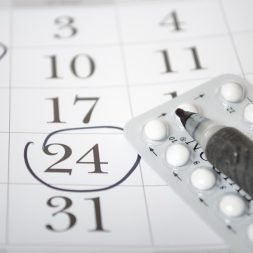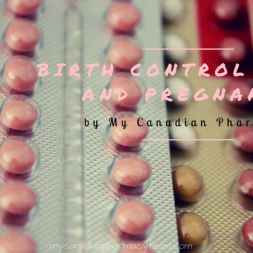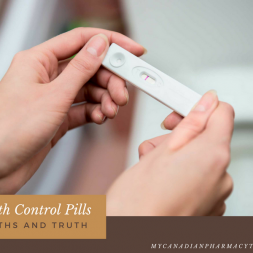Practice shows that oral contraceptives cannot protect us from unwanted conception by 100%. Pregnancy can occur while receiving even the most advanced and sophisticated products. Why is this happening, how to avoid it? And most importantly, what to do about an unplanned pregnancy? This and other question were considered in this article.
In what cases can you get pregnant?
You can get pregnant taking birth control pills in the following cases:
- If you have just started to protect yourself from pregnancy using oral contraceptives and did not use during the first two weeks of drug reception additional means of protection. This condition is recommended to observe only during the first cycle, during subsequent cycles additional means of protection are not required;
- If you missed regular birth control pill intake for more than 12 hours, the contraceptive effect will be lower. Consequently, the risk of becoming pregnant increases;
- If oral contraception is chosen incorrectly. For example, you take a drug that is intended for nursing women. These contraceptives contain fewer hormones, so the possibility that you will get pregnant is very high;
- If you had vomiting, stomach upset or diarrhea less than three hours after taking a contraceptive pill.
Oral contraceptives can be ineffective if simultaneously take other pharmaceutical drugs and even some of the traditional remedies. They include antibiotics (ampicillin, rifampicin, tetracycline, erythromycin), antifungals (griseofulvin), antiepileptic drugs (phenytoin), barbiturates (thiopental, phenobarbital). From traditional medicine – St. John’s wort. These drugs reduce contraceptives absorption in the intestine or accelerate decomposition process in the liver resulting in decreased effectiveness. Therefore, when appointing any medication to be sure to tell your doctor about taking oral contraceptives. Perhaps, at the time of treatment, you will have to resort to other pregnancy prevention methods, such as chemical or barrier contraception.
It is worth mentioning about alcohol. Keep in mind that alcohol also causes the liver to work harder: it in urgent mode gets rid of toxic substances, and at the same time neutralizes estrogen contained in birth control pills. Therefore, when receiving large doses of alcohol estrogen is rapidly inactivated and can not fully act on ovaries and suppress ovulation.
What to do if conception happened?
 Pregnancy during using contraceptives is always a surprise and a cause for concern. Woman have lots of anxious thoughts: how medications can affect pregnancy and the fetus, will the baby be born with physical or mental disabilities, and is reasonable to carry out abortion?
Pregnancy during using contraceptives is always a surprise and a cause for concern. Woman have lots of anxious thoughts: how medications can affect pregnancy and the fetus, will the baby be born with physical or mental disabilities, and is reasonable to carry out abortion?
The conception which took place on the background of using oral contraceptives is not a reason to worry about the successful outcome of pregnancy. Long-term statistics show that the number of children born disabled in such cases doesn’t exceed the average level. Thousands of healthy babies prove these statistics.
Thus, the fact of taking oral contraceptives should not affect your decision to keep or terminate the pregnancy. Doctors-gynecologists claim that the amount of hormones in such pills is not large enough to harm the baby. Pregnancy in these circumstances shall be considered and observed as perfectly normal.
Rules of using oral contraceptives
According to experts from My Canadian Pharmacy, oral contraception is a convenient, safe and fairly reliable way of protection. To minimize the risk of unintended pregnancy, be careful and accurate, and strictly follow your doctor’s recommendations.
Here are basic rules for using oral contraceptives:
- Do not take oral contraceptives without a doctor’s advice. Consult a gynecologist. Only a doctor can correctly choose the drug;
- Take birth control pills during 21 days of each menstrual cycle. This is followed by a seven-day break, during which similar to menstruation hemorrhages appear. As a general rule, you should start taking pills on the first day of menstrual cycle, that is, the day when hemorrhages appear;
- Do not forget to take pills. Ideally, they should be taken at the same time of day, which greatly increases their efficiency;
- During the first month of using the drug, you need to use additional contraceptive methods, to completely exclude the possibility of conception;
- If there were vomiting or severe diarrhea, immediately take another pill, because the first is not completely absorbed after ingestion;
- If you started taking drugs that reduce oral contraceptives effect, use the additional means of protection until the cycle ends;
- If you are taking oral contraceptives, do not abuse alcohol.
Posted by Dr. Himanshu Singh

 English
English Deutsch
Deutsch Français
Français Italiano
Italiano Español
Español Svenska
Svenska Português
Português 日本人
日本人 Dansk
Dansk Norsk
Norsk Suomi
Suomi Czech
Czech



